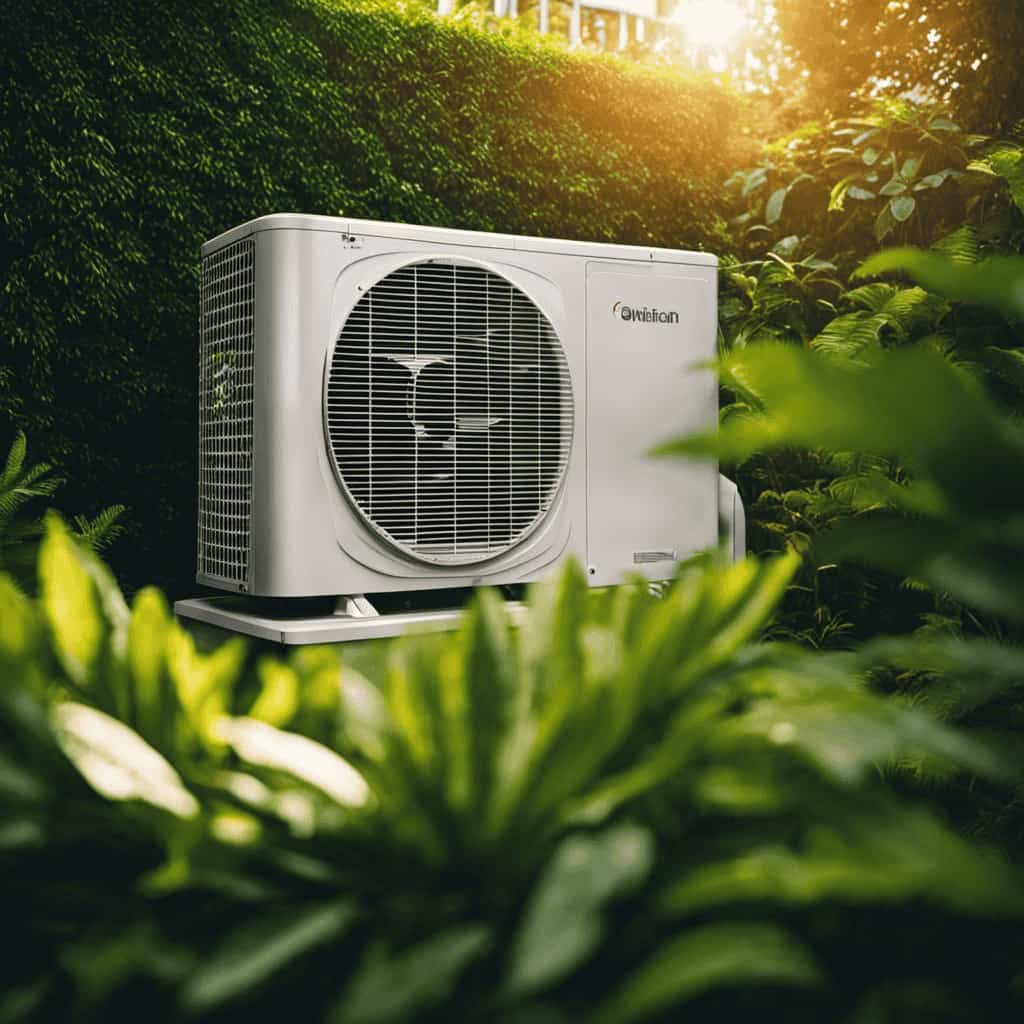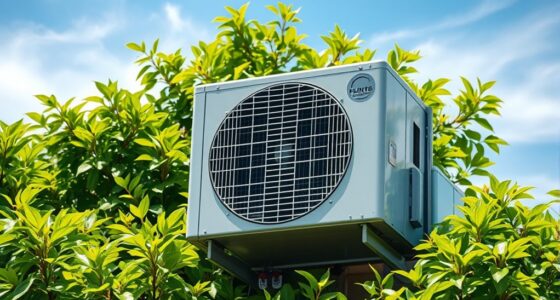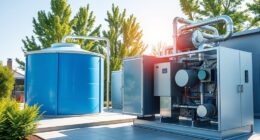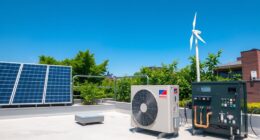We’re available to assist you in deciding between a heat pump and traditional air conditioning.
When it comes to keeping your home cool and comfortable, it’s important to weigh the pros and cons of each option. In this article, we’ll delve into the energy efficiency, cost considerations, and other factors you need to consider.
By the end, you’ll have the knowledge you need to make an informed decision that serves your needs best.
Let’s dive in!

Key Takeaways
- Heat pumps are highly energy efficient and can help reduce utility bills
- Traditional air conditioning units have a lower upfront cost compared to heat pumps
- Heat pumps provide both heating and cooling capabilities, while traditional AC units only provide cooling
- Heat pumps have a lower environmental impact and consume less energy compared to traditional AC units
Pros and Cons of Heat Pumps
When considering heat pumps, we should weigh the pros and cons to make an informed decision.
Heat pump technology offers a range of benefits that are worth considering. Firstly, heat pumps are highly energy efficient, as they transfer heat from the outside air or ground to heat or cool our homes. This means lower energy consumption and reduced utility bills.
Secondly, heat pumps are versatile and can provide both heating and cooling, making them suitable for different climates. They can extract heat even in cold temperatures, making them ideal for regions with mild winters.
However, it’s important to consider the climate suitability for heat pumps. In extremely cold climates, their efficiency may decrease, requiring supplementary heating.
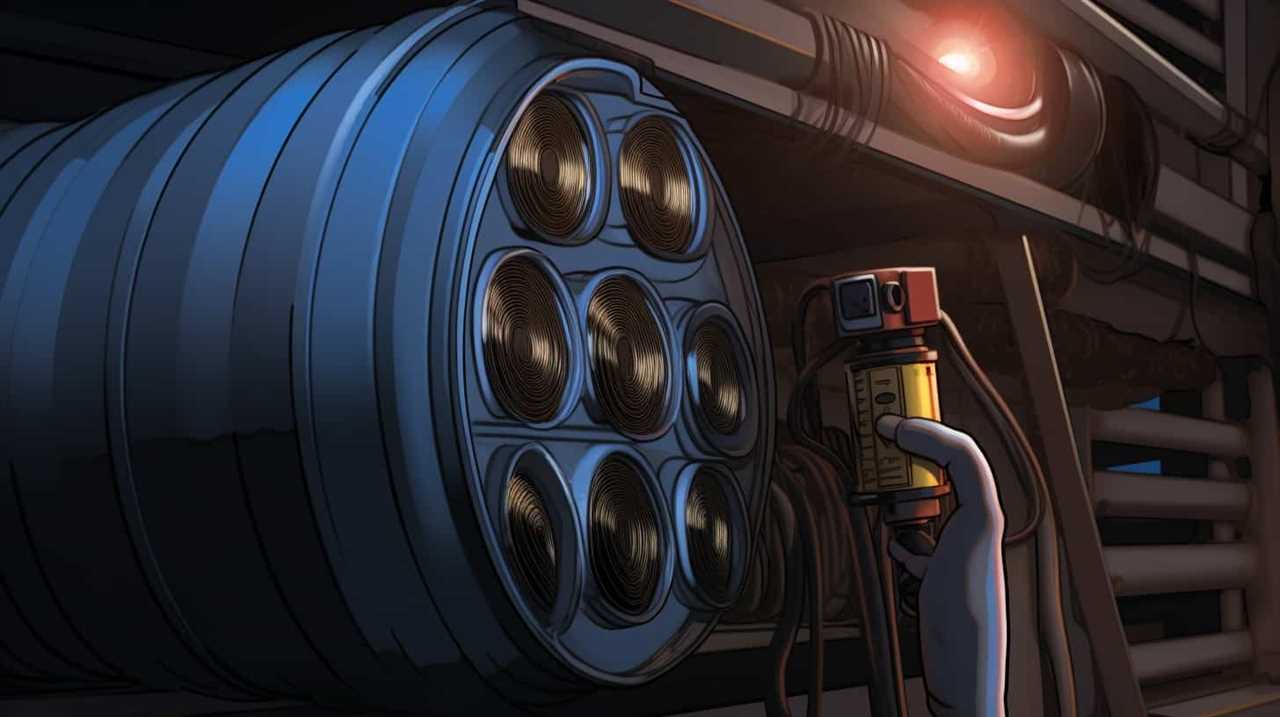
Transitioning to the subsequent section, let’s now examine the benefits and drawbacks of traditional air conditioning systems.
Benefits and Drawbacks of Traditional Air Conditioning
Now let’s explore the benefits and drawbacks of traditional air conditioning systems.
Here are the advantages of traditional air conditioning:
-
Reliable Cooling: Traditional air conditioning systems are known for their ability to provide consistent cooling throughout a space, ensuring comfort even during the hottest days.
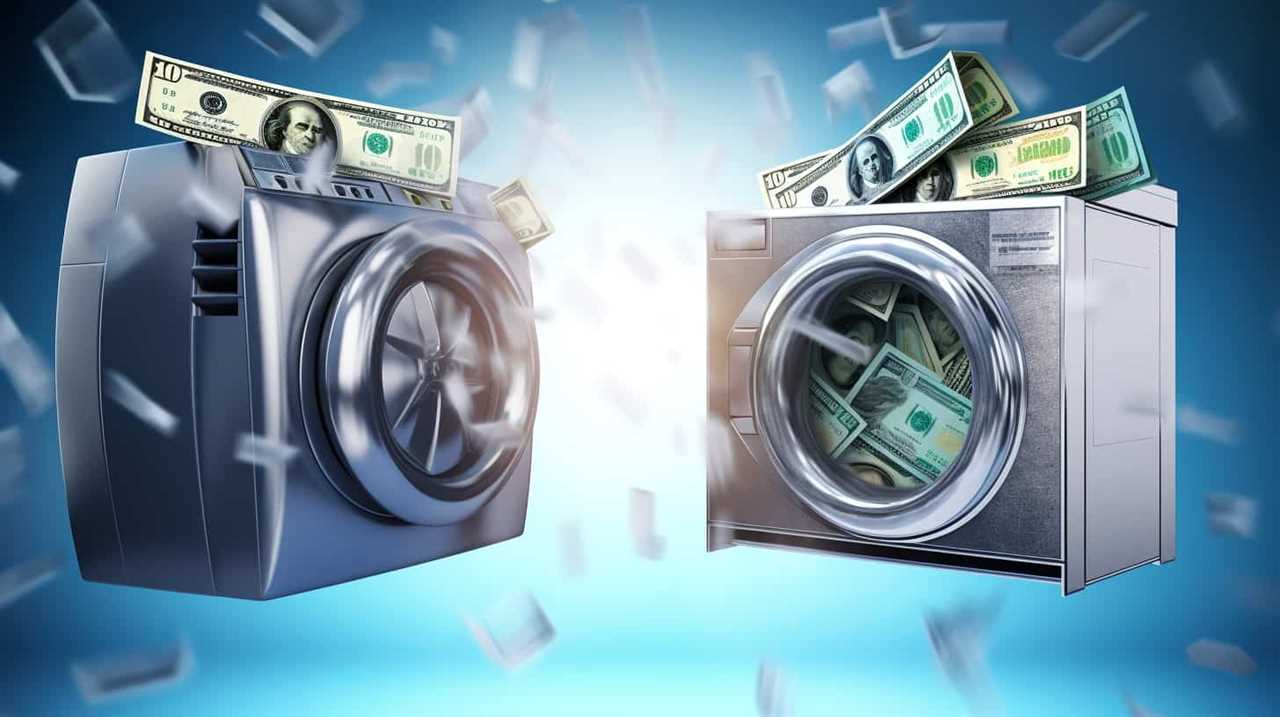
-
Lower Initial Cost: Compared to heat pumps, traditional air conditioning systems generally have a lower upfront cost, making them a more budget-friendly option for homeowners.
-
Effective in Humid Climates: Traditional air conditioning systems are particularly effective in areas with high humidity levels, as they’re designed to remove moisture from the air, creating a more comfortable indoor environment.
-
Ease of Maintenance: Traditional air conditioning systems are relatively simple to maintain and repair, with a wide availability of parts and skilled technicians, ensuring minimal downtime.
However, it’s important to consider the disadvantages of traditional air conditioning:
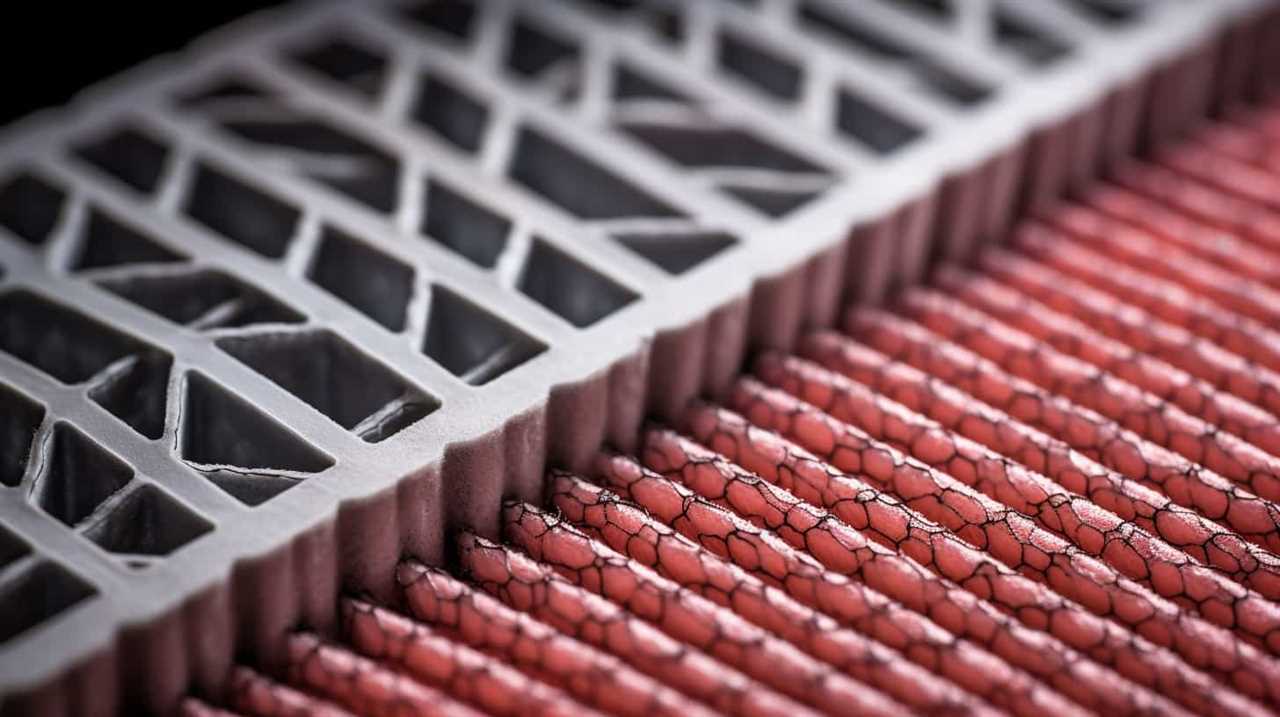
-
Higher Energy Consumption: Traditional air conditioning systems tend to consume more energy, resulting in higher electricity bills compared to more energy-efficient alternatives.
-
Environmental Impact: Traditional air conditioning systems rely on the use of refrigerants that contribute to ozone depletion and global warming, posing environmental challenges.
-
Limited Heating Capability: Unlike heat pumps, traditional air conditioning systems don’t provide heating capabilities, requiring separate heating systems for colder months.
-
Limited Temperature Control: Traditional air conditioning systems often lack precise temperature control, leading to fluctuations in room temperatures.
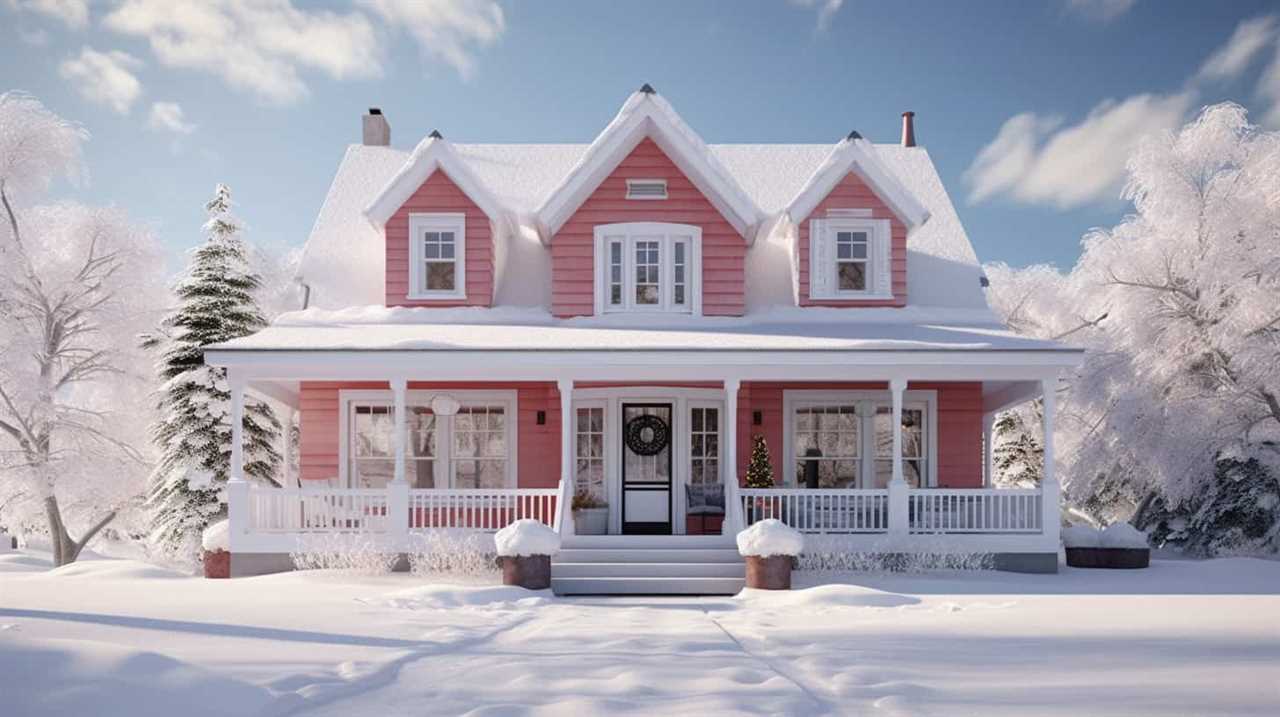
Understanding the advantages and disadvantages of traditional air conditioning systems will help us make an informed comparison with heat pumps in terms of energy efficiency.
Energy Efficiency Comparison: Heat Pump Vs Traditional AC
Let’s compare the energy efficiency of a heat pump to that of a traditional air conditioning system.
When it comes to energy savings, heat pumps are the clear winner. Heat pumps transfer heat from one location to another, rather than generating it themselves. This means they consume much less energy compared to traditional AC units that rely on electricity to cool the air.
In fact, heat pumps can provide up to 50% more energy savings than traditional AC systems.
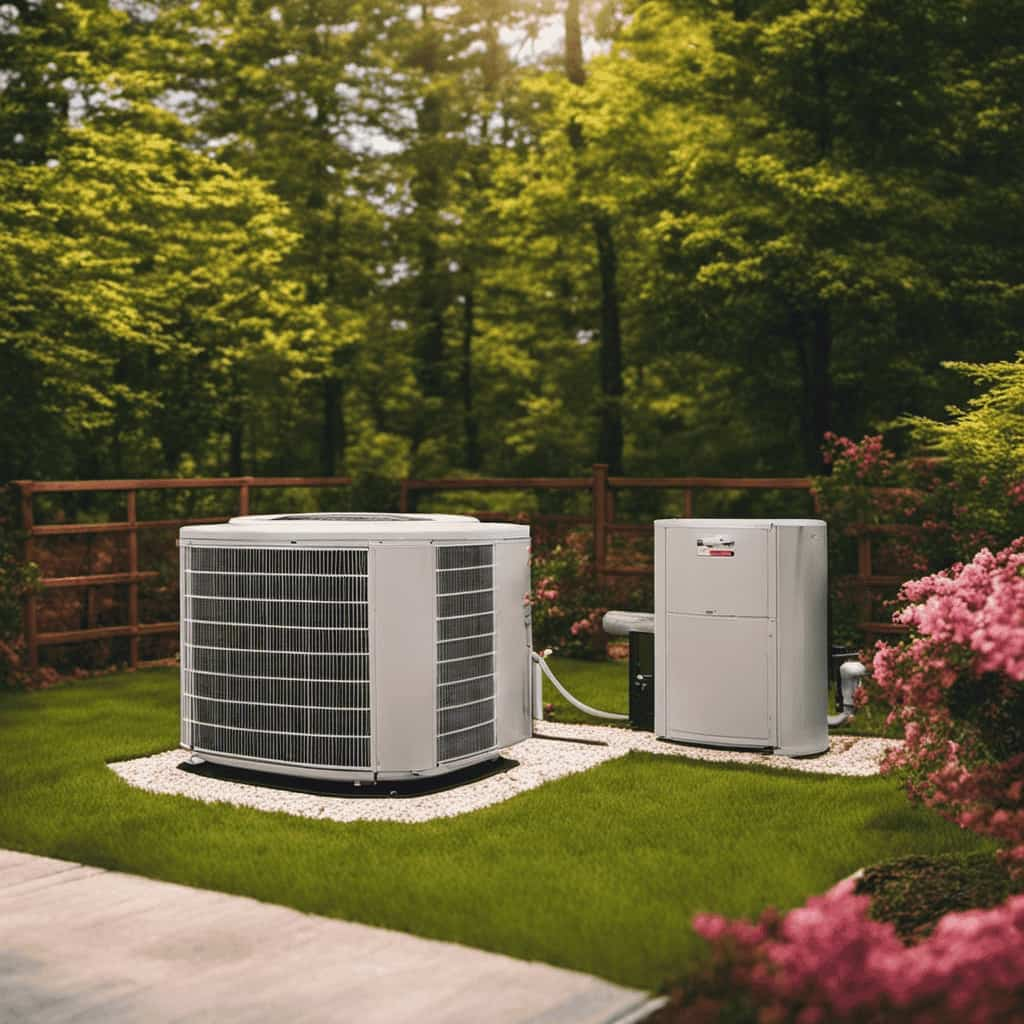
Additionally, heat pumps have a lower environmental impact. By using less energy, they reduce greenhouse gas emissions and help combat climate change.
Cost Considerations: Heat Pump Vs Traditional AC
One important factor to consider when comparing heat pumps and traditional AC systems is the cost. Here are four cost considerations to keep in mind:
-
Heat pump installation: While the initial cost of a heat pump may be higher than that of a traditional AC system, it’s important to consider the long-term savings. Heat pumps are highly efficient and can help reduce energy consumption, leading to lower utility bills over time.
-
Maintenance costs: Heat pumps typically require regular maintenance to ensure optimal performance. This can include tasks such as cleaning or replacing filters, inspecting and lubricating components, and checking refrigerant levels. It’s important to factor in these ongoing maintenance costs when considering the overall cost of a heat pump.
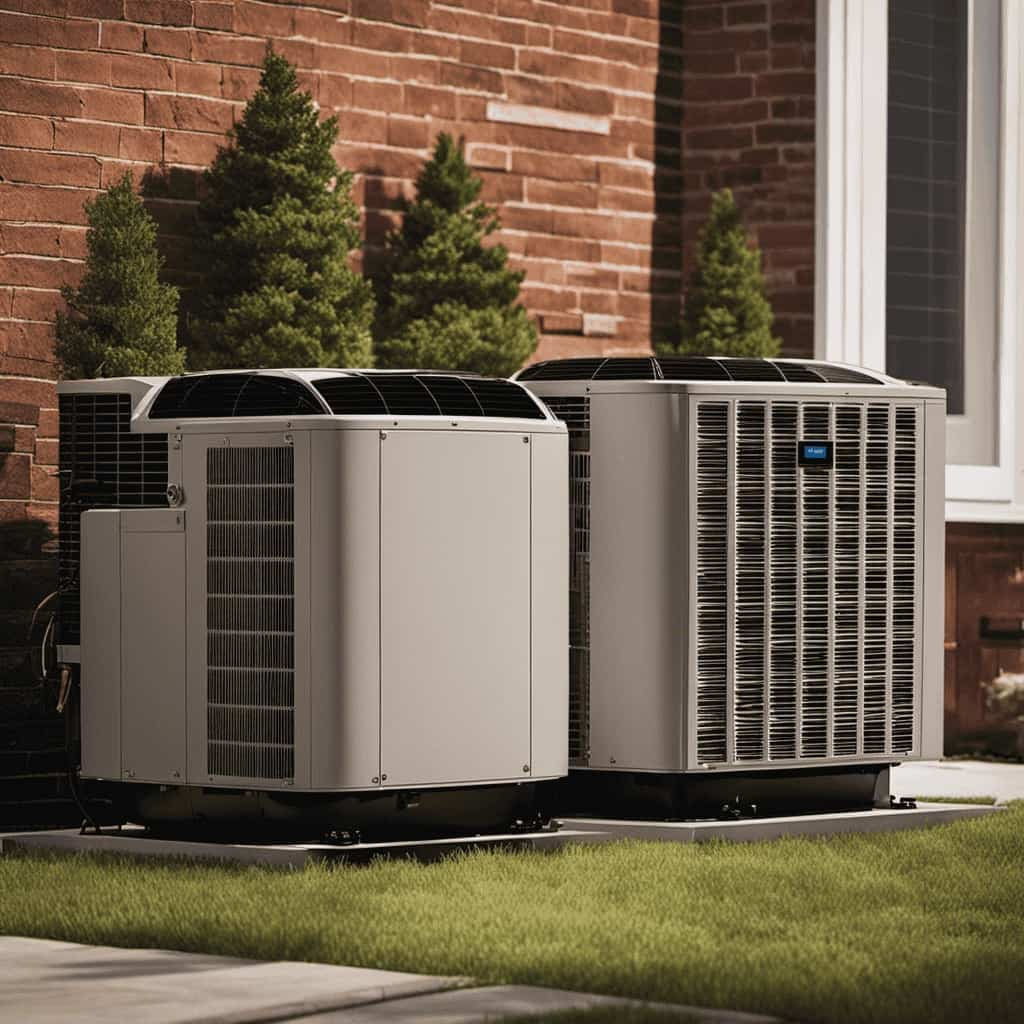
-
Potential savings: Due to their energy efficiency, heat pumps can provide significant savings on heating and cooling costs. This can help offset the initial investment and ongoing maintenance expenses, making them a cost-effective choice in the long run.
-
Rebates and incentives: Many government agencies and utility companies offer rebates and incentives for installing energy-efficient heat pumps. These financial incentives can help lower the upfront costs and make heat pumps a more affordable option.
Factors to Consider When Choosing Between a Heat Pump and Traditional AC
When deciding between a heat pump and traditional AC, there are several factors to consider.
One important factor is the installation requirements. Heat pumps require both an indoor and outdoor unit, while traditional AC systems only require an outdoor unit. This means that heat pump installation can be more complex and may require additional space.

Another factor to consider is the long term savings. Heat pumps are known for their energy efficiency, which can result in lower energy bills over time. On the other hand, traditional AC systems may have lower upfront costs but could lead to higher energy consumption and expenses in the long run.
Therefore, it’s important to weigh the installation requirements and long term savings when making a decision between a heat pump and traditional AC.
Frequently Asked Questions
Can a Heat Pump Be Used in Colder Climates With Harsh Winters?
Yes, a heat pump can be used in colder climates with harsh winters. While the efficiency of a heat pump may decrease in extreme cold, it can still provide heating. Consider the installation cost and efficiency ratings when making your decision.
How Does the Noise Level of a Heat Pump Compare to Traditional Air Conditioning Units?
When it comes to the noise level, a heat pump is generally quieter than traditional air conditioning units. This is due to the technology used in heat pumps, which prioritizes energy efficiency and reduced noise.
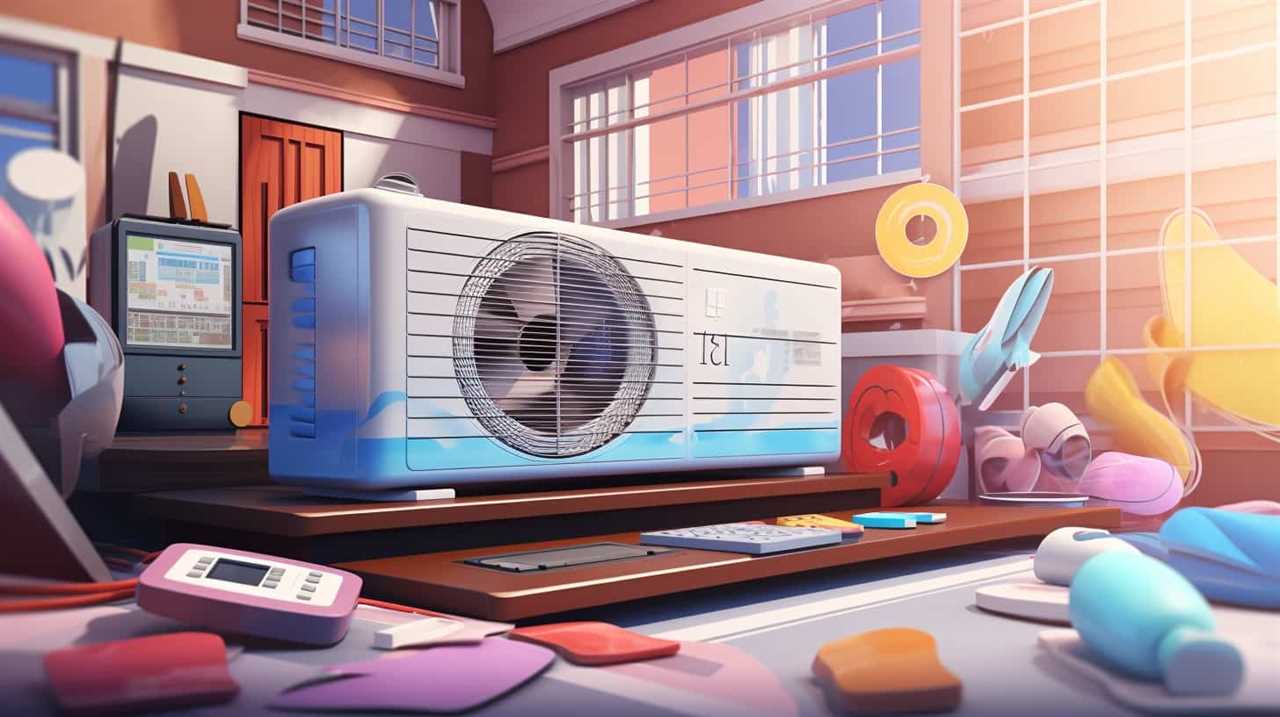
Are There Any Government Incentives or Rebates Available for Installing a Heat Pump or Traditional Air Conditioning Unit?
There are government incentives and rebates available for installing both heat pumps and traditional air conditioning units. These incentives are often based on the energy efficiency of the system and can help offset the cost of installation.
Can a Heat Pump Be Used for Both Heating and Cooling Purposes?
Yes, a heat pump can be used for both heating and cooling purposes. The efficiency of a heat pump is higher compared to a furnace for heating, making it a viable option for year-round temperature control.
What Is the Average Lifespan of a Heat Pump Compared to a Traditional Air Conditioning Unit?
The average lifespan of a heat pump is typically longer than that of a traditional air conditioning unit. Additionally, heat pumps are known for their energy efficiency, making them a popular choice for both heating and cooling purposes.
Conclusion
In conclusion, when deciding between a heat pump and traditional air conditioning, it’s essential to consider factors such as energy efficiency, cost, and personal preferences.
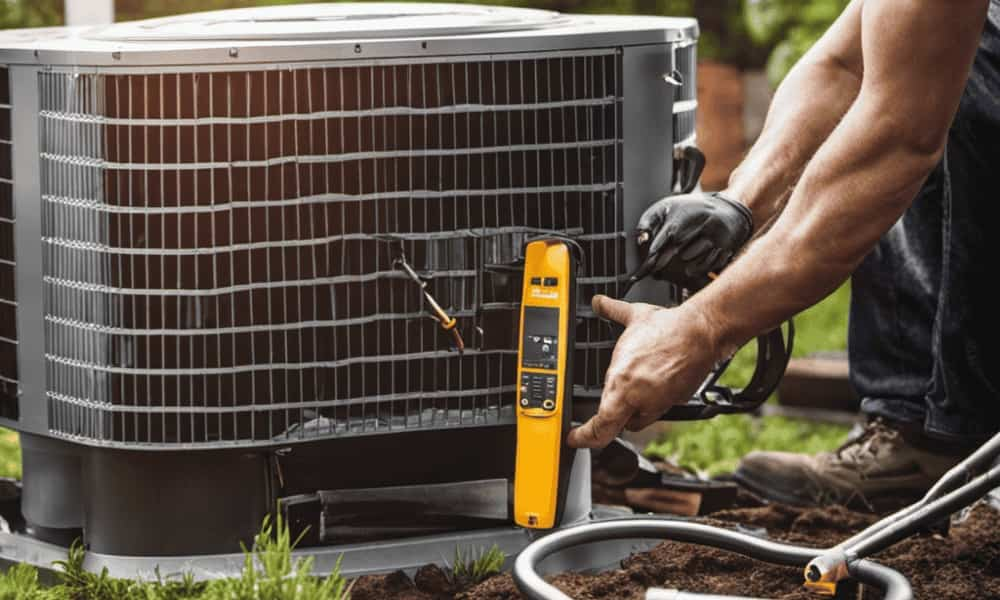
While heat pumps offer the advantage of providing both heating and cooling functions, traditional AC units may be more cost-effective in certain situations.
Ultimately, choosing the right system is like finding the perfect puzzle piece that fits seamlessly into your home’s comfort needs.

